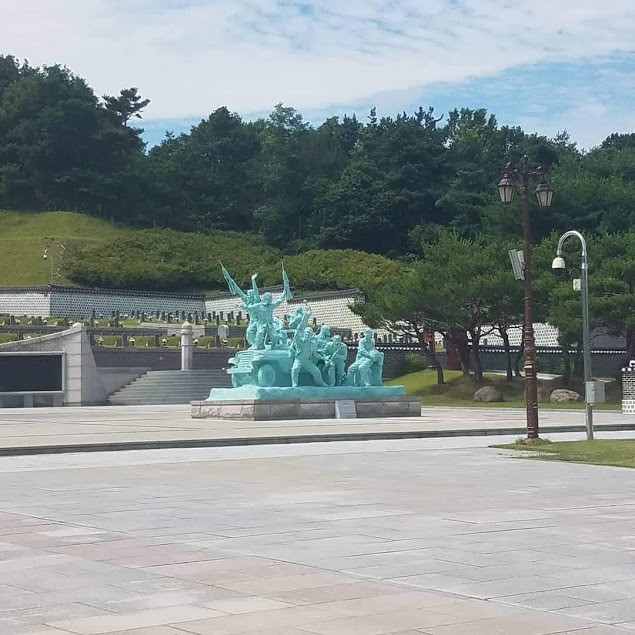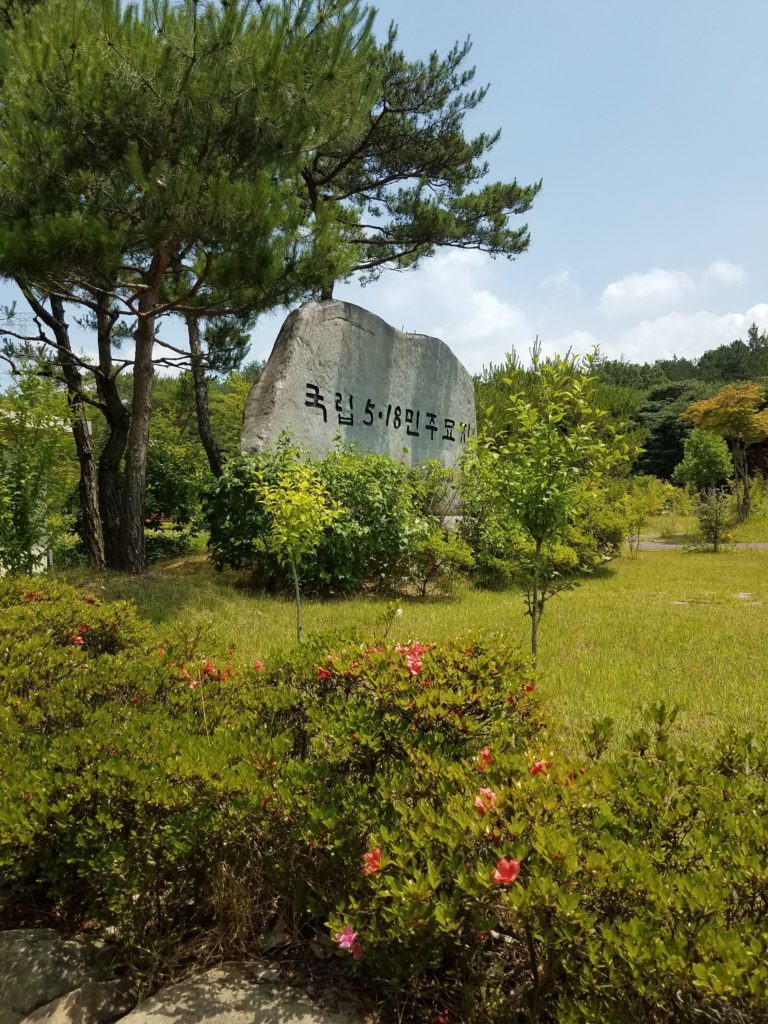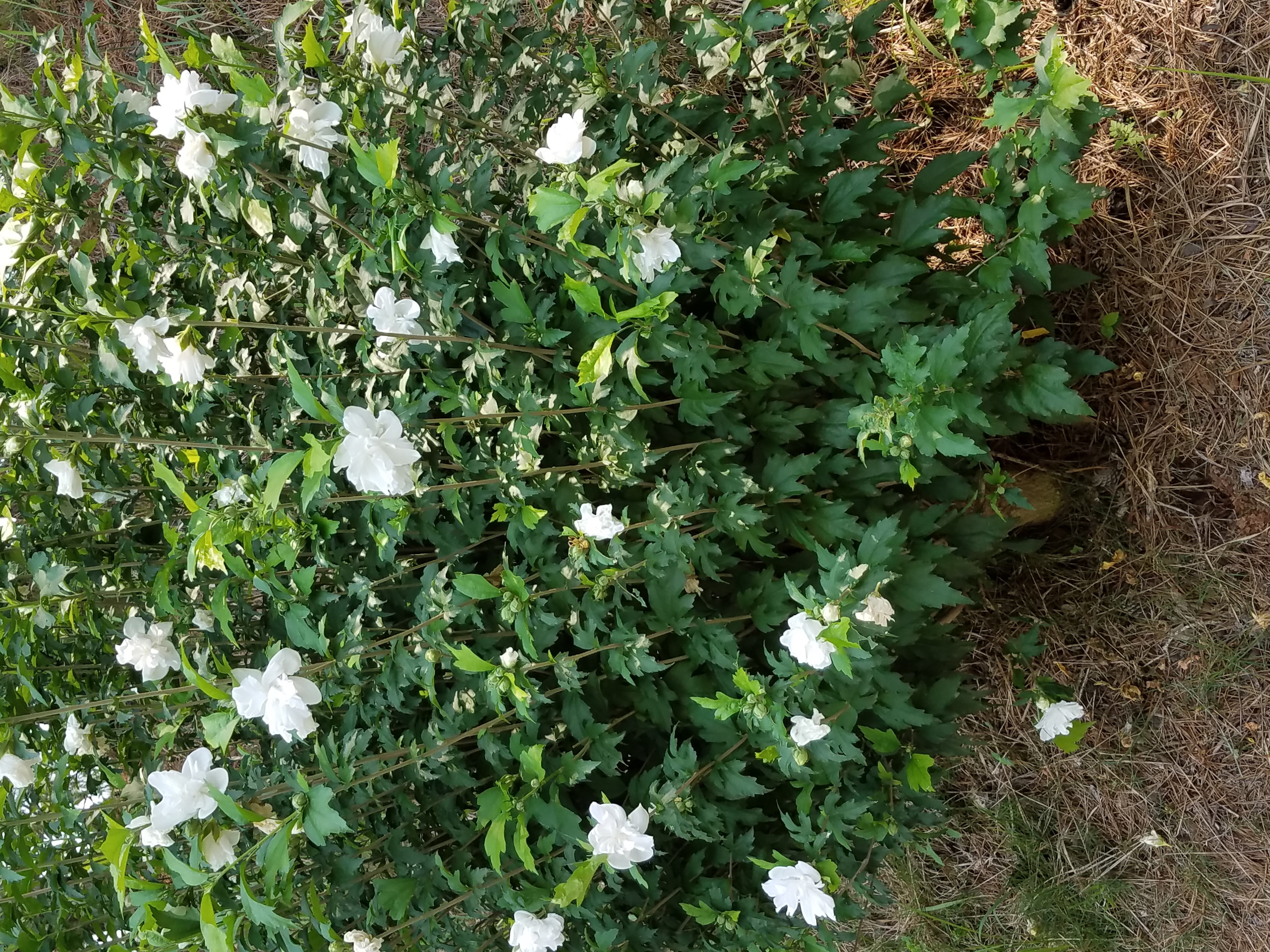The Unifying Poetry of “March for the Beloved”
Written and photographed by Marcy L. Tanter.
The co-opting of “March for the Beloved” by protestors in Hong Kong this summer was a remarkable event. For many citizens of Korea, hearing the familiar tune with Cantonese lyrics may have been jarring, but it was also a source of pride. The translator of the Cantonese lyrics, according to an article in the Dong-A Ilbo (June 17, 2019), wrote them in 2014 after the “Umbrella Revolution.” The spirit of the song permeated through the Hong Kong protestors who gained strength from hearing and singing it. Inasmuch as the March is a song for democracy, it is also a poem that reminds us of Korean patriotism, in the tradition of the Korean poetry that followed the final quiet that fell over Gwangju at the end of May 1980.
“March for the Beloved” is an emblem of the pain suffered by the people of Gwangju, but it becomes a torch of hope when the voices of thousands of people swell together and raise the melody to the sky as happened during the Candlelight Revolution in 2016. Whether it is sung slowly or quickly, the poetry of the lyrics creates emotions that unify people and give them encouragement to keep their movement going. The lyrics of the song were translated into English by Chonnam National University English professor Robert Grotjohn:
We will leave no honors, no love, no fame.
We promised to keep working on, long as we shall live
Streams and mountains remember though the years pass by
Waken’d spirits are calling us as they shout this cry:
“We are marching on; keep faith n follow us.”
“We are marching on; keep faith n follow us.”
Dear comrades have gone; our flag still waves.
While working for days to come we will not be swayed
Streams and mountains remember though the years pass by
Waken’d spirits are calling us as they shout this cry:
“We are marching on; keep faith n follow us.”
“We are marching on; keep faith n follow us.”
The lyric is a promise made to the dead while it recruits the living. Poetry has the power to connect the poet and their reader, the narrator, and their subject; reading the song as a poem is a powerful experience. The first two lines indicate immediately that the movement is not an attempt to seek personal satisfaction or benefit, while the “Streams and mountains” of the third line will keep the marchers accountable as the “Waken’d spirits” raise the call to action. The marchers are led by supernatural forces rather than by humans, infusing the cause so that it becomes so much more than just the people’s response to the massacre. The spirits’ cries for (an implied) democracy come from the living, breathing land, symbolizing Korea the nation and a national crusade.
The narrator/s of the lyric lament the deaths of their friends in line 7, but “our flag still waves” despite those losses. The thirst for democracy does not die with the dead but increases because of the dead. The marchers “will not be swayed” by the violence of Chun Doo-hwan’s military, but they will keep going, spurred on by the memories of their friends and by their obligation to their country. The “waken’d spirits” of the first verse conjure the spirits of the land and water, but the spirits of the second verse are those of the ancestors and the friends who have died for the sake of Korea. Chun’s violence might have been his attempt to threaten and strike fear into the marchers, but to avenge the dead and to free their nation, the marchers have to keep going.

Memorial to student activists at the May 18 National Cemetery.The Gwangju Uprising spurred hundreds, if not thousands, of poems during and after that dreadful May. Patriotism is not the only theme found in the poems, but it is present in many. The poetry of the era is full of sorrow and mourning, but much of it calls for the people to carry on the cause of democracy for the sake of the nation with the same passion as “March for the Beloved.”
In the final verse of “Ah, Kwangju! Korea’s Cross!”, from the gaze of Mudeung Mountain, Kim Joon-tae calls for the people of Gwangju to stand together patriotically through the generations that follow:
City of youth growing ever younger
as time goes rolling on.
Now we are surely united,
firmly. Surely,
firmly, we rise up hand in hand.
(Translation by Brother Anthony.)
For Kim Yong-Taek, the aftermath of the Uprising brings a chance for democracy and unification; protests were popping up all over the country as the people were inspired by Gwangju. If the people of Korea would unify in their desire for democracy, then it would surely come:
Freedom stays alive behind the history of sacrifice.
Though it disappears from this age, the flower of democracy will bloom.
As the wind of reunification blows on the road I left,
tears well up at the spring news of national liberation.
(Translation by JP Song & Anne Rashid.)
Kim underscores the time people need to mourn and the time it will take for democracy to be established. From the spring that saw the sacrifice of the people, democracy will bloom in a later spring when the poet is older, but he is sure it will come.

Considering the belief in democracy that permeated Korean poetry after the Gwangju Uprising and seeped into music, it is easy to see how “March for the Beloved” appeals to the protestors in Hong Kong. As of this writing, they have already faced some violent actions from the Chinese government, but to protect the citizens who fear extradition to the mainland, they cannot back down. The fight for their fellows is not only about the people affected at the moment, but it is also about Hong Kong’s sovereignty and their patriotic duty to her.
This past May, Hong Kong musical duo Anthony Wong and Tats Lau had a huge hit with their song “Is It a Crime?” about the June 4, 1989, military action in Tiananmen Square, Beijing. Since the Chinese government refuses to acknowledge the incident, despite the deaths of thousands of citizens, activists and artists keep working to remind the world that it happened. According to The Daily Herald, “the composition has been banned in mainland China, where all discussion of the protest movement and the military crackdown is strictly taboo” (June 2, 2019). In a striking parallel with the Gwangju Uprising, Tiananmen Square also began with peaceful protests by students and today, in early September 2019, thousands of Hong Kong students who are refusing to attend their first days of classes are protesting peacefully in the streets. “March for the Beloved” ties together the Gwangju Uprising, Tiananmen Square, and the current Hong Kong protests through its history, purpose, and message. The poetry of the song speaks to the past, present, and future of anyone whose nation is struggling to fight oppression.
The Author
Marcy L. Tanter is a professor of English at Tarleton State University in Stephenville, Texas. She has taught two summer school sessions at Chonnam National University and is compiling an anthology of poems in English about the Gwangju Uprising.





